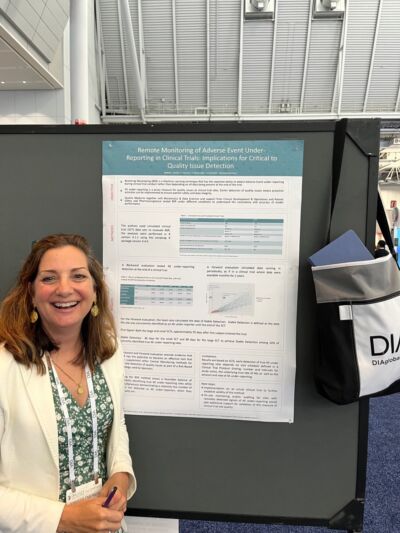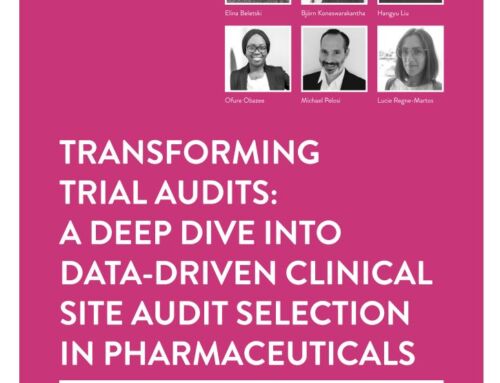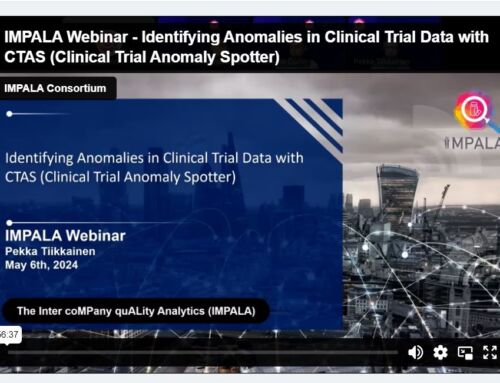The DIA Global Meeting held in Boston from June 25-29, 2023, brought together professionals from the pharmaceutical industry, regulatory agencies, and research organisations. IMPALA was grateful to have a great delegation of members and to have three sessions to showcase some of the work products the Consortium is focusing on. It also afforded the group a chance to connect in person for collaborative exchange and conversation. See below for details on the different sessions where IMPALA was represented.

IMPALA group dinner at DIA 2023
Session #223: One Year On: How Quality Briefs are Transforming the Approach to Quality and Driving Innovation to Serve Patients
One of the significant highlights of the event was the presentation on Quality Briefs by Paula Walker (Roche) on behalf of IMPALA. QBs were discussed as a regulatory concept aimed at supporting innovation and expediting the delivery of new products to patients. The participation of regulatory bodies like the FDA and MHRA in the panel highlighted their recognition of the value QBs could add.
To build trust in QBs, alignment with internationally accepted standards, such as those defined by the International Council for Harmonisation (ICH) and Critical to Quality concepts, is crucial. This alignment should span from study design and Quality by Design to Risk-Based Quality Management. The goal is to provide health authorities with a transparent view of any issues, mitigations, and their impact throughout the development process, aiding their risk-based decision making.
The importance of self-regulation by IMPALA and transparency in the QB approach was emphasised, with the expectation that significant protocol deviations or discrepancies may be viewed as a lack of transparency. Furthermore, engagement with health authorities and international alignment emerged as critical focus areas requiring ongoing collaboration and work.
Session #157: IMPALA Industry Consortium: Quality Analytics Use Cases and Early Health Authority Feedback
Michael Torok, Ph.D. (Genentech), Lorraine Fay (Bristol Myers Squibb), Haleh Valian PhD (Biogen) and Robert Studt (Johnson & Johnson) presented three key areas of discussion:
1) The vision of IMPALA and examples of it’s quality analytics products, highlighting their practical applications in the pharmaceutical industry.
2) Ongoing feedback from healthcare authorities on the quality analytics methodologies used by IMPALA, emphasising the importance of collaboration and alignment with regulatory guidelines.
3) Guidance on how sponsors and regulators can join forces with IMPALA to leverage the expertise of IMPALA members and regulators to enhance the quality analytics approaches.
Overall, the session aimed to showcase the benefits of IMPALA’s quality analytics initiatives and foster collaboration between industry stakeholders and Health Authorities to advance quality analytics for clinical drug development.

Lorraine Fay, Robert Studt, Haleh Valian and Michael Torok presenting on behalf of IMPALA at DIA 2023
Session #108: Data Analytics for Quality Assurance: Shifting the Paradigm from Issue Detection to Quality Evidence Generation
The session was chaired by Timothé Ménard from Roche, featuring Meera Nagaria (Johnson & Johnson), Kelly Kwon (Genentech), and Hangyu(Cedric) Liu (Biogen). The session delved into the application of Natural Language Processing in two primary use cases: pharmacovigilance quality (product information) and Corrective and Preventive Action management. The panel explored the challenges associated with detecting and mitigating errors, reducing the burden of retrospective quality assessment, and leveraging real-time Quality Assurance activities. Additionally, they discussed the potential benefits of utilising advanced analytics to innovate drug safety and compliance processes. The session emphasised the collaborative efforts between IMPALA members and the potential of taping into unstructured data for QA.
Poster session: Remote Monitoring of Adverse Event Under-Reporting in Clinical Trials: Implications for Critical to Quality Issue Detection.
This poster was submitted by Jennifer A. Emerson, PhD, PMP (Boehringer Ingelheim) and outlined the study conducted to evaluate Bootstrap Resampling (our first Open Source analytics package) under different conditions to understand the consistency and accuracy of the method for the detection of Adverse Event under-reporting and how early in a clinical trial first identification would be possible.

Jennifer Emerson presenting her poster at DIA 2023




